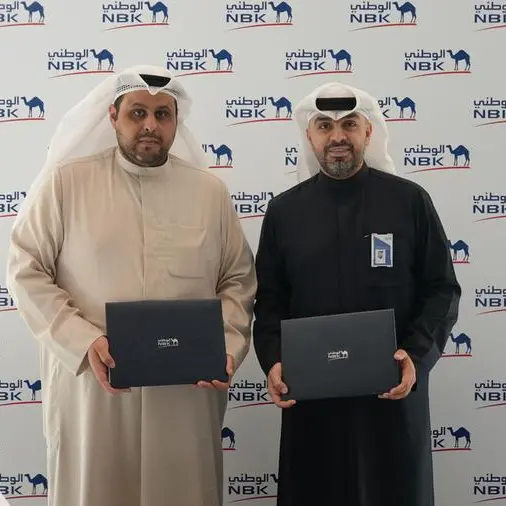- 40% of parents said that their kids are not buckled up because they don’t like being strapped in
- 84% of UAE motorists face anxiety or stress while on the road
- 82% of correspondents believe that they would drive more safely if they left for their destination 10 minutes earlier
United Arab Emirates: Recent research commissioned by Volkswagen Middle East reveals that 40% of parents do not fasten their kids safely in the car because their kids do not like being strapped in; 84% of UAE motorists experience anxiety or stress when driving, while 82% recognise that they would drive more safely if they had left 10 minutes earlier. Volkswagen launches a Safety Campaign in partnership with RoadSafetyUAE, an advocate for responsible and safe driving in the UAE, to address three key findings based on this research – child safety, managing stress and anxiety on the road and journey preparation.
Child safety
34% of correspondents said they do not have a child seat, while 40% said they do not fasten their kid’s seat belt safely because their kids do not like being strapped in. 29% feel that they are a safe driver and therefore do not need to strap their child into a car seat.
As a family-focused brand, child safety is incredibly important to Volkswagen. To help make child seats more fun for children and therefore encouraging its usage, Volkswagen has created a unique cuddly toy that attaches to the child’s seat belt.
Motorists facing stress and anxiety on the road
Over two thirds of respondents think that the high levels of anxiety and stress impact their driving; and this was more prominent with the female drivers and in the age group 35-44 years old. Only 16% of drivers stating they are never affected by anxiety or stress on the road.
Half the respondents articulated that listening to calming music, radio or podcasts helps overcoming anxiety. Additional measures mentioned included thinking about something uplifting, focusing on breathing techniques and engaging in conversations either on the phone or with passengers.
Based on this research, Volkswagen Middle East has partnered with Anghami, the leading music streaming platform in the GCC, to create a calming playlist to promote safer driving. Volkswagen will also host an exclusive webinar with Clinical Psychologist, Dr. Saliha Afridi at The LightHouse Arabia, focused on how drivers can manage their stress and anxiety for safer driving on the roads.
Dr. Saliha Afridi, PsyD. (US), Clinical Psychologist and Managing Director of The LightHouse Arabia commented: "Good emotional regulation skills and healthy mental health practices are fundamental for safe driving. Whether it's lingering feelings from a negative interaction or anger associated with something that happens on the road, having the ability to regulate your emotions, calm yourself down quickly, and not being emotionally reactive is essential for a safe drive."
Leaving 10 minutes earlier
From the research, 23% of respondents said that they are more likely to speed when running late, while 18% admitting that they would tailgate. Overall, 57% recognised that that they would be calmer and drive less stressed if they were to leave a few minutes earlier for their destination.
Volkswagen aims to put this to the test with schools going back. Partnering with renowned influencers, Hattem Mattar and Ines Sebiane will challenge themselves to leave 10 minutes early for their school run and report back on how this impacted their journey and the valuable safety benefits to their followers and Volkswagen’s audiences.
Victor Dalmau, Managing Director at Volkswagen Middle East adds: “For Volkswagen, safety is, and will always be, our top priority. Therefore, we feel that, beyond producing cars with the latest technology on active and passive safety features, our responsibility is also to make drivers really aware of the importance of safe driving and helping them to achieve it. We have held already safety campaigns over the past years, and we are now taking this further through our partnership with RoadSafetyUAE.”
Thomas Edelmann, Founder and Managing Director of RoadSafetyUAE said: “When tackling any type of problem, you first need to be fully aware of it and then look at the measures needed to tackle it. Road safety is no different, and that’s why with this cooperation with Volkswagen we want to raise awareness of its importance and show drivers options to improve it.”
Volkswagen’s Safety Campaign will launch with the school’s opening on September 5th and is perfectly timed ahead of World Mental Health Day on October 10th.
About The Survey:
The survey was commissioned by Volkswagen and RSUAE with a UAE representative sample of 1,006 respondents. It was conducted by YouGov, a global online market research agency.
© Press Release 2021
Disclaimer: The contents of this press release was provided from an external third party provider. This website is not responsible for, and does not control, such external content. This content is provided on an “as is” and “as available” basis and has not been edited in any way. Neither this website nor our affiliates guarantee the accuracy of or endorse the views or opinions expressed in this press release.
The press release is provided for informational purposes only. The content does not provide tax, legal or investment advice or opinion regarding the suitability, value or profitability of any particular security, portfolio or investment strategy. Neither this website nor our affiliates shall be liable for any errors or inaccuracies in the content, or for any actions taken by you in reliance thereon. You expressly agree that your use of the information within this article is at your sole risk.
To the fullest extent permitted by applicable law, this website, its parent company, its subsidiaries, its affiliates and the respective shareholders, directors, officers, employees, agents, advertisers, content providers and licensors will not be liable (jointly or severally) to you for any direct, indirect, consequential, special, incidental, punitive or exemplary damages, including without limitation, lost profits, lost savings and lost revenues, whether in negligence, tort, contract or any other theory of liability, even if the parties have been advised of the possibility or could have foreseen any such damages.



















